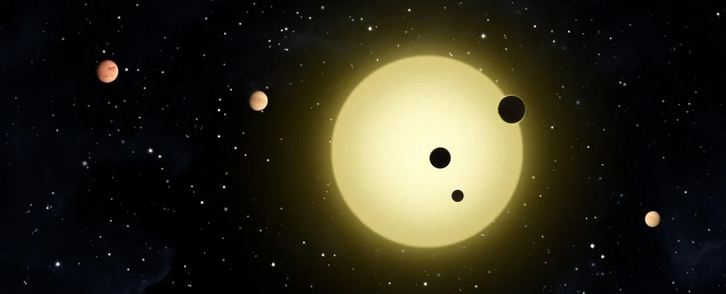So far, astronomers amazed us with many fantastic discoveries, including one of the most intriguing stars and planet systems.
Every system is unique and moving, but the star HD 158259 will leave in awe.
The star is a bit larger than the Sun, and it’s orbited by six planets, including five mini-Neptunes and a super-Earth.
Here are all the cool details.
Fantastic Planet System: Features and Other Characteristics
Astronomers utilized data from the TESS exoplanet-hunting space telescope and the SOPHIE spectrograph. They found that six planets are orbiting star HD158259 in what seems to be perfect harmony.Â
The phenomenon is actually named orbital resonance and is considered one of the most extraordinary and rare events in our Solar System. It occurs when the orbits of two cosmic bodies around their host are very close.
A unique phenomenon
Orbital resonances have also been discovered in exoplanets. The recent occurrence, however, is more different.
According to astronomers, the planets orbiting HD158259 is in a 3:2 resonance with the neighboring planet out away from the star. The period ratio is 1.5. What does this mean?
For every three orbits every planet does, the next one out does two. So, the orbits are 2.17, 3.4, 5.2, 7.9, 12, and 17.4 days.Â
The complete period ratios are 1.57, 1.51, 1.53, 1.51, and 1.44 between every planet.
Astronomer Stephane Udry from the University of Geneva discussed the way such systems might form. She stated:
“[…] far from the star before migrating towards it. […] the resonances play a crucial part.”Â
More Significant Details
The resonances are intriguing because they challenge astronomers’ measurements and studies.Â
They are believed to appear when planetary embryos in the protoplanetary disk increase and move back, away from the disk’s center. Such a thing generates a series of orbital resonance throughout the system.Â
Moreover, when the disk’s remaining gas evaporates, the orbital resonances might be destabilized – HD158259 could experience this at the moment.
The study has been published recently in Astronomy & Astrophysics.












Leave a Reply